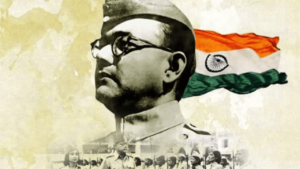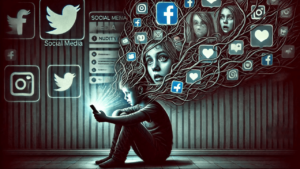The Supreme Court of Brazil banned X, Elon Musk’s social media platform, sparking a heated debate over free speech and democracy. The move came after a prolonged standoff between the platform and Brazil’s judiciary over disinformation and the lack of a physical presence in the country.

The recent ban of the social media platform X, formerly known as Twitter, in Brazil has escalated tensions between the tech industry and government authorities, adding another layer to the ongoing global debate on freedom of speech and disinformation. This time, a conflict erupted between Elon Musk, the owner of X, and Alexandre de Moraes, a judge at Brazil’s Supreme Court.
The Ban Order and Its Context
On a recent Friday, Brazilian Supreme Court judge Alexandre de Moraes issued a ruling for the “immediate, complete, and comprehensive suspension” of X’s operations in Brazil. This decision follows a months-long standoff over the platform’s refusal to comply with local regulations regarding disinformation and content moderation. Judge de Moraes instructed Brazil’s national communications agency to take all necessary measures to enforce this order.
The judge also warned that any Brazilian citizen attempting to bypass the ban through technological means such as a Virtual Private Network (VPN) could face a daily fine of 50,000 reais (approximately $8,900). This move aims to prevent individuals from circumventing the ban and accessing X despite the court’s ruling.
Why Was X Banned in Brazil?
The origins of the conflict traced back to allegations of disinformation on X related to Brazil’s 2022 presidential elections. During this period, several accounts supportive of former President Jair Bolsonaro allegedly attempted to discredit the country’s electoral system after Bolsonaro lost the election to current President Luiz Inácio Lula da Silva. Following these events, Brazilian authorities began investigating whether Bolsonaro was involved in a plot to stage a coup to prevent Lula from taking office in January 2023.
Judge de Moraes, known for his firm stance against threats to democratic processes, ordered the suspension of several accounts on X. However, the platform, under Elon Musk’s ownership, refused to comply. Tensions heightened when de Moraes threatened to arrest a legal representative of X in Brazil for non-compliance. This prompted Musk to shutter the company’s offices in Brazil, citing what he described as “censorship” by the judge.
Elon Musk’s Response: Defiance and Criticism
Elon Musk, who acquired X in 2022, did not take the ban quietly. In a series of posts on X, Musk accused Judge de Moraes of attempting to undermine democracy in Brazil, calling him an “evil dictator cosplaying as a judge.” Musk argued that free speech is a fundamental pillar of democracy and that the judge’s actions were politically motivated attempts to suppress dissenting voices.
Musk further asserted that X was “the #1 source of truth in Brazil” and criticized the judge for attempting to “destroy” democracy by limiting what could be said online. He also suggested that the ban was an act of political retaliation against his platform’s refusal to censor certain political opponents of the current administration.
Financial Repercussions and Legal Ramifications
The ban comes with significant financial consequences for Musk’s ventures in Brazil. In addition to blocking access to X, Judge de Moraes froze the financial assets of Starlink, Musk’s satellite internet company, which has seen rapid growth in Brazil, amassing over 250,000 customers. The judge ordered the freezing of these assets to recover fines of 18.5 million reais ($3.28 million) imposed on X for non-compliance with court orders.
Musk has vowed to challenge these decisions, stating that his companies would make their services available for free in Brazil if necessary to uphold free speech principles. Meanwhile, X has been partially inaccessible in Brazil since the ban was enforced, although some users have reported intermittent access.
Global Implications: Free Speech vs. Misinformation
This clash between a tech giant and a nation’s judiciary raises crucial questions about the balance between free speech and the regulation of disinformation. Judge de Moraes has been a controversial figure in Brazil’s political landscape, particularly after being vested with broad powers to curb online content that could threaten democratic processes. Critics argue that his actions amount to judicial overreach and censorship.
On the other hand, supporters of the ban, including Judge de Moraes himself, argue that unchecked disinformation on platforms like X poses a severe threat to democracy by undermining public trust in legitimate electoral outcomes and democratic institutions. “Those who violate democracy, who violate fundamental human rights, whether in person or through social media, must be held accountable,” de Moraes asserted in his recent speech.
A Test of Ideological Commitments and Market Dynamics
The unfolding situation in Brazil also tests Elon Musk’s commitment to his stated principles regarding free speech. Since acquiring X, Musk has positioned the platform as a “digital town square” where virtually all types of expression are allowed. However, his response to similar regulatory challenges in other countries has varied. For instance, X complied with India’s request to censor content critical of Prime Minister Narendra Modi but has resisted Australia’s order to remove content related to a violent attack.
This inconsistency in Musk’s approach suggests a pragmatic adaptation to different market dynamics and political landscapes. While standing firm in Brazil might be part of a broader strategy to position X as a champion of free speech, the financial costs of this strategy remain to be seen.
Looking Ahead: What’s Next for X in Brazil?
There is still much to be resolved in the legal dispute between Judge de Moraes and Musk. Musk’s determination to defend what he views as the basic right to free expression will be put to the test as long as the ban is in place. At the same time, it will test Brazil’s judiciary’s ability to negotiate the tricky landscape of regulating digital platforms in an age of widespread disinformation and political conflict.
The outcome of this conflict could create a significant precedent for how countries govern global tech giants and implement their laws in the digital era. It also serves as a reminder of the fine line that must be drawn between defending democratic values and making sure that the freedom of speech isn’t restricted for political reasons.
As the argument continues, the situation in Brazil reflects a larger global conflict over who controls the flow of information and how digital platforms should be managed. The rulings in this case may have a significant impact on future internet governance globally as well as on Brazil.
This case is a powerful reminder that the fight for democracy, free expression, and the fight against disinformation is far from ended and that it is frequently difficult to draw the distinction between upholding the law and suppressing criticism.
Read Next:

The Psychology of Love: Why Valentines Day Matters More Epic Than You Think
Discover the psychology of love and why Valentines Day is more important than you think. Learn how love impacts the brain, strengthens relationships, and boosts

Premier League Highlights: Arsenal Humiliate Man City 5-1, Spurs and Palace Secure Crucial Wins
Arsenal demolished Manchester City 5-1 in a statement premier league highlights win, reigniting their title hopes. Meanwhile, Crystal Palace stunned Man United 2-0, and Tottenham

How Budget 2025 Impacts the Indian Middle-Class: Major Tax Benefits and Glaring Omissions
Budget 2025 offers major tax relief to the middle class, including zero tax on incomes up to ₹12 lakh. However, it misses out on incentives

Degrees vs Employability: Why “Highly Qualified Degree Holders” Struggle to Find Jobs While “Less Qualified Individuals” Get Hired Faster!
Many highly qualified individuals struggle to secure jobs, while less qualified candidates get hired quickly. This Degrees vs Employability paradox is caused by employer preferences,

The Power of Mindset: Why Looking Poor Doesn’t Make You Poor, but Thinking Poor Does!
Discover why looking poor doesn’t define your wealth but thinking poor does. Learn the power of mindset and how a growth-oriented mindset can lead to

Overthinking: How It’s Damaging Today’s Youth – Causes and Cure in 2025
Understanding how overthinking is silently damaging today’s youth, from its causes rooted in societal pressure and social media to its long-term effects on mental health.

Netaji Subhash Chandra Bose: An Epitome of Epic Leadership
Discovering the incredible life of Netaji Subhash Chandra Bose, a leader whose vision, courage, and determination redefined India’s freedom struggle. Explore his leadership qualities, ideology,

Global News Headlines Today: From Gaza Ceasefire to Blue Origin’s Massive 2025 Milestone
Explore today’s top global news headlines, from the Gaza ceasefire and Blue Origin’s historic spaceflight to Apple losing its top spot in China’s smartphone market.

The Hidden Danger of Social Media Nudity: A Threat to Today’s Youth in 2025
Understanding how social media nudity is impacting the youth and their future potential. Learn about the risks of unregulated content, cultural sensitivities, and solutions for

FA Cup 2024: Manchester United Survive Arsenal Test to Advance in FA Cup Fourth Round
Manchester United defeated Arsenal in a thrilling FA Cup third-round encounter, with Atlay Bayindir’s heroics sealing the win. Read about key moments, standout performances, and

Supercopa de España: Barcelona Dominate Real Madrid 5-2 to Claim Supercup
Barcelona delivered a stunning 5-2 victory over Real Madrid in the Supercopa de España final. Read about the key moments, star players, and the significance

Global News Highlights Today: India’s Metro Milestone, US Aid Shift, iOS Stunning Updates and More!
Explore today’s global news highlights, including the Tibet earthquake, political tensions in South Korea, LA wildfires, US aid shifts, and India’s metro milestone. Stay informed
